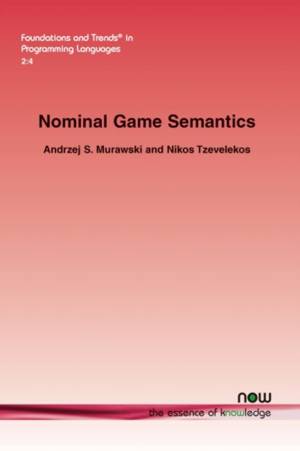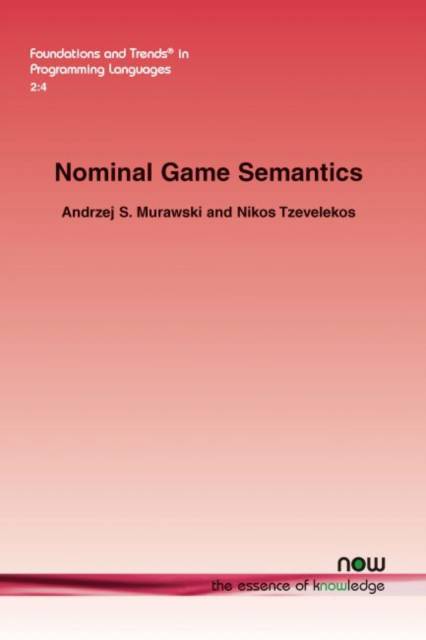
Door een staking bij bpost kan je online bestelling op dit moment iets langer onderweg zijn dan voorzien. Dringend iets nodig? Onze winkels ontvangen jou met open armen!
- Afhalen na 1 uur in een winkel met voorraad
- Gratis thuislevering in België vanaf € 30
- Ruim aanbod met 7 miljoen producten
Door een staking bij bpost kan je online bestelling op dit moment iets langer onderweg zijn dan voorzien. Dringend iets nodig? Onze winkels ontvangen jou met open armen!
- Afhalen na 1 uur in een winkel met voorraad
- Gratis thuislevering in België vanaf € 30
- Ruim aanbod met 7 miljoen producten
Zoeken
Omschrijving
Nominal Game Semantics complements existing introductory literature to game semantics, which highlight the then new structural components necessary to model higher-order computation; for example, arenas, justification pointers, and innocence. In contrast, this monograph focuses on explaining the nominal content of our games. It begins by covering the basics of nominal sets before proceeding to introduce the programming language of study, called GroundML. GroundML is a higher-order language with references capable of storing integers, references to integers, references to references to integers, and so on. Before presenting the game model of GroundML in full detail, the reader is given a flavor of the nominal approach with the presentation of ToyML that, for the sake of simplicity, features only integer-valued references and restricted higher-order types. Because ToyML is simpler, it allows a more direct and elementary presentation of its game semantics, which will help the reader to make a transition to the full-blown model. Nominal Game Semantics has been written in a way that will make it accessible to readers who are familiar with standard denotational semantics and types.
Specificaties
Betrokkenen
- Auteur(s):
- Uitgeverij:
Inhoud
- Aantal bladzijden:
- 94
- Taal:
- Engels
- Reeks:
- Reeksnummer:
- nr. 6
Eigenschappen
- Productcode (EAN):
- 9781680831061
- Verschijningsdatum:
- 9/03/2016
- Uitvoering:
- Paperback
- Formaat:
- Trade paperback (VS)
- Afmetingen:
- 156 mm x 234 mm
- Gewicht:
- 145 g

Alleen bij Standaard Boekhandel
+ 136 punten op je klantenkaart van Standaard Boekhandel
Beoordelingen
We publiceren alleen reviews die voldoen aan de voorwaarden voor reviews. Bekijk onze voorwaarden voor reviews.











